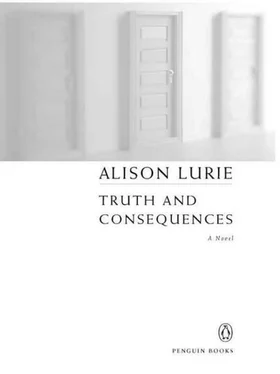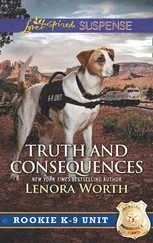“Davi was extremely upset at the airport. He was in the right, of course, but what he said wasn’t useful. Maybe you can talk a little sense into him.”
“We’ll try,” Henry said. Jane, who found Davi Gakar rather formidable, did not have the confidence to echo this promise. Going to the desk, she presented his file, and Sheriff Hanshaw was summoned.
“If you’d come this way, please.” Jane and Henry were directed by a female clerk down a corridor to a small ugly room containing six plastic chairs, a table, a very young uniformed policeman, and Davi Gakar, in an elegantly cut three-piece suit and a state of indignation.
“This is totally unreasonable, unforgivable,” he declared after being told that he and his family could not yet leave the building. “You have the documents now.”
“Please be patient, Professor,” the policeman said in a manner that suggested he had said it several times before. “The sheriff is looking at your papers now.”
“The staff at the airport are incompetent bunglers,” Davi Gakar declared. “They cannot tell a wedding present from a weapon. Look.” He gestured at the table before him, on the white plastic top of which was laid out a heterogeneous collection of objects, as in the memory game Jane had played at children’s parties. The center-piece was a rectangular black leather case lined in royal-blue plush and containing a large carving knife and fork with bone handles. Surrounding it was a debris of shiny silver wrapping paper and ribbon, a child’s flute, a pair of nail scissors and a nail file, and a bright-yellow toy bulldozer with a shiny metal scoop. “The stupidity was amazing,” Davi continued. “They imagined that with this equipment my family and I planned to hijack their plane. Presumably, I would attack the pilot with this carving knife and fork. My wife would stab the copilot with her nail scissors, my daughter would poke them with her flute, and my son would hit them with his toy car. That is what they thought, apparently.”
The young policeman said nothing, but it was clear from his expression that this was exactly what he did think. Henry, however, laughed, causing Jane to look at him with disapproval.
“Why, I asked them, would an American citizen, born in Forest Hills, New York, wish to attack an American plane? And if I wished to do so, why would I bring my wife and children into danger? I tried to be reasonable. I pointed out that we are not Muslims, we are Hindus, whereas the terrorists of September 11 were Muslims. If they are so determined to arrest someone, I said, why didn’t they arrest Charles Amir when he flew to Washington last week? He is a Muslim, and he is not a citizen.”
The young policeman, who had been sitting at the table in an attitude of deep boredom, looked up. “Would you repeat that name, please?” he asked.
“Amir, A-M-I—Wait a minute.” Davi checked himself. “I am not accusing anyone of anything, I am merely trying to suggest that this sort of profiling is irrational, appalling, and illegal.”
“Professor Gakar,” Jane said, feeling helpless, “I’m sure this can be resolved—” But Henry interrupted her, turning on Davi.
“Listen,” he said. “If you want to get out of here today and get to that wedding, you’ve got to shut up. These guys don’t get academic irony. Didn’t you see that sign by the screener in the airport, warning people not to make jokes? You go on like this, you’re digging your cell with your own teeth.”
“So what do you suggest I should do?” Davi asked scornfully.
“I suggest you should stop complaining and start apologizing for all the trouble you’ve caused.”
“The trouble I’ve caused?” Davi inquired. He frowned, cleared his throat, and looked up at the acoustical tiles as if they were an object of scholarly interest. “You may have a point,” he finally said, lowering his gaze. “In certain situations, expediency rules.”
Now more people entered the room: the sheriff followed by Bill Laird and an energetic young lawyer from the University counsel’s office. It was clear that the balance of the event had shifted. Polite and conciliatory remarks were exchanged by all parties; local and long-distance phone calls were made. The airport manager was consulted, and it was arranged that the Gakars could leave on the next flight to New York, which would depart in about an hour. The carving set and the nail scissors would be transported in checked baggage; the flute and the yellow bulldozer were returned to their owners. Everyone shook hands and smiled, some agreeably and others wearily or ironically. The sheriff bought cans of Pepsi-Cola for the Gakar children from a vending machine, causing them to giggle and gobble, while their mother the dentist suppressed her natural reaction with difficulty. Finally Henry and Jane conveyed the family back to the airport.
“It was really great, what you said to Davi Gakar,” Jane told him as they drove away through the rain. “I wouldn’t have dared, but it worked.”
“For the moment,” Henry remarked.
“He was being unreasonable. And why did he insist on putting that carving knife into a carry-on bag?”
“Some people hate to check luggage.”
“Then he could have mailed it. Wait, you’re going in the wrong direction; this isn’t the way to the Center.”
“Yeah, I know.” Henry turned off the main road onto a wooded lane.
“I have to get back,” Jane protested as he stopped the car under a big dripping maple tree whose wet leaves had turned a brilliant gold.
“Not yet.” Henry turned off the engine. He moved closer, and kissed her.
“No, you shouldn’t,” Jane said weakly.
“Yes, I should. We deserve it. You know we do.”
“No,” Jane murmured, but when Henry moved back she met his mouth with her own. Just this once, she told herself.
Two minutes passed in a silent, deeply satisfying blur; then another car went by, throwing up a heavy spray of water.
“I must get back to the office,” Jane said, trembling all over. “Susie will wonder what happened—Bill Laird’s probably called too—”
“All right.” Henry started the car. “I’ll come by the Center later.”
“No, please don’t. Not now. I can’t—it’s too much—”
“Okay. But you’ll be at the Farmers’ Market tomorrow morning, right?”
“Yes, I guess so.” I don’t have to go, she told her conscience.
“Good.” Henry turned back onto the highway. “You don’t know how long I’ve been wanting to do that,” he said.
“No,” Jane agreed, thinking that it couldn’t be as long as she had wanted it. “How long?”
“Since the first time I saw you at the Center, when you were so mean about the sofas.”
“Really?” And in spite of herself, she smiled.
TEN
On a late October afternoon, Alan Mackenzie stood at the window of a Manhattan apartment, gazing east across Central Park. Back in Corinth the trees were unsightly and bare; but here they still kept their leaves, and from the tenth floor the view was of a broad sunlit carpet of chrome yellow and ocher and flame-colored chrysanthemums, rippled by a gentle breeze. Indoors, however, there was little to see. This two-room apartment, the occasional pied-à-terre of an acquaintance of Delia Delaney, was furnished in a bleak, minimalist style, all smoky gray mirrors and black leather and chrome.
For Alan, the last twenty-four hours had been strange: alternately exhausting and exhilarating. It was his first trip alone since his illness. Jane had offered to come, but he had refused, partly but not wholly because he knew she disapproved of his purpose and was reluctant to ask for a leave from her job. But without Jane’s help he had been burdened with invalid equipment: the cane, the wheeled carry-on, and the clumsy black nylon bag containing his medications, his two icepacks, and the three foam rubber chair pads that he needed to make almost any chair tolerable. Even so he could not sit for more than fifteen minutes without pain, and the flight to New York had been hideous. The seats on the little commuter plane were narrow and hard, and its wind-buffeted motion made him ill. The ride to the city in the jolting taxi was even worse, and by the time he reached his destination he was in agony.
Читать дальше







![Кэмерон Доки - Правда и ее последствия[Truth and Consequences]](/books/79610/kemeron-doki-pravda-i-ee-posledstviya-truth-and-con-thumb.webp)




